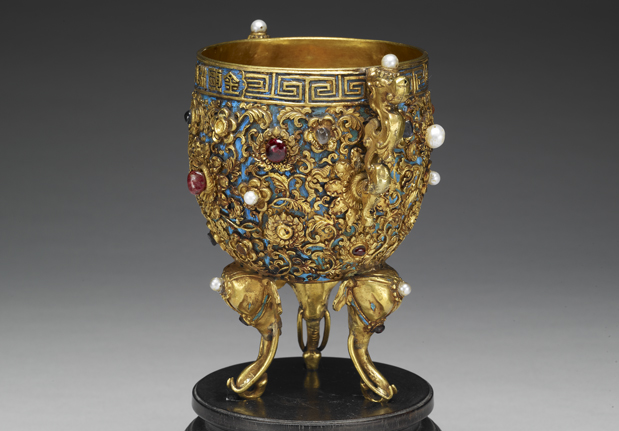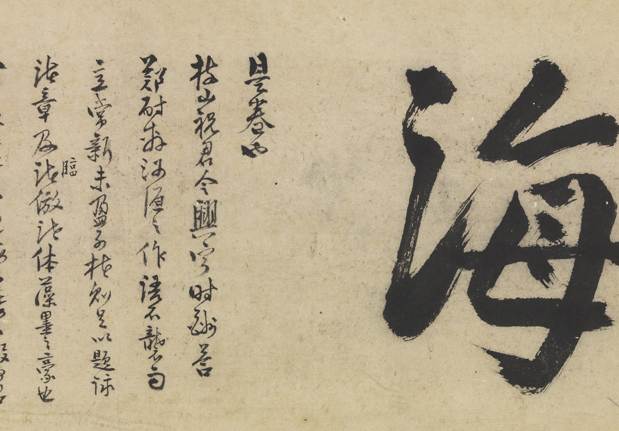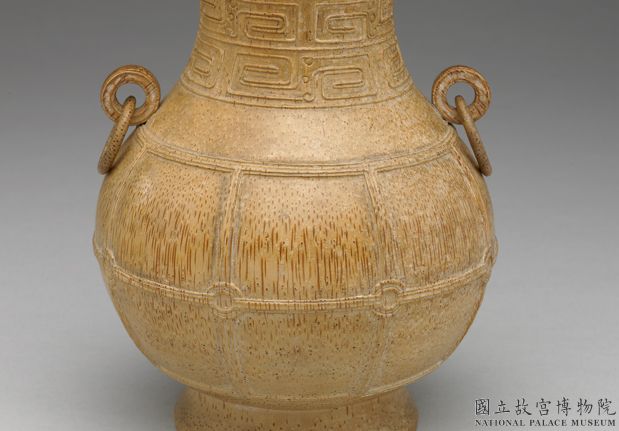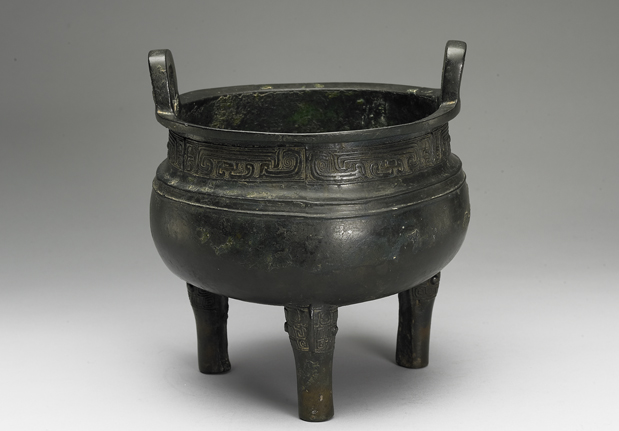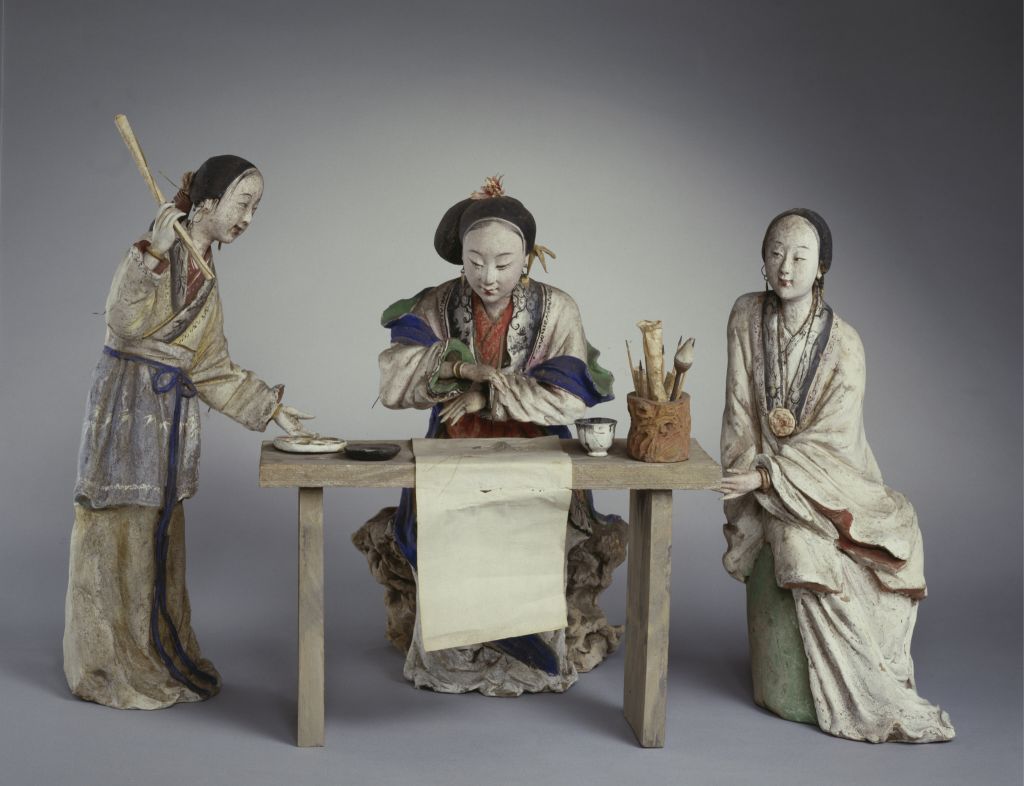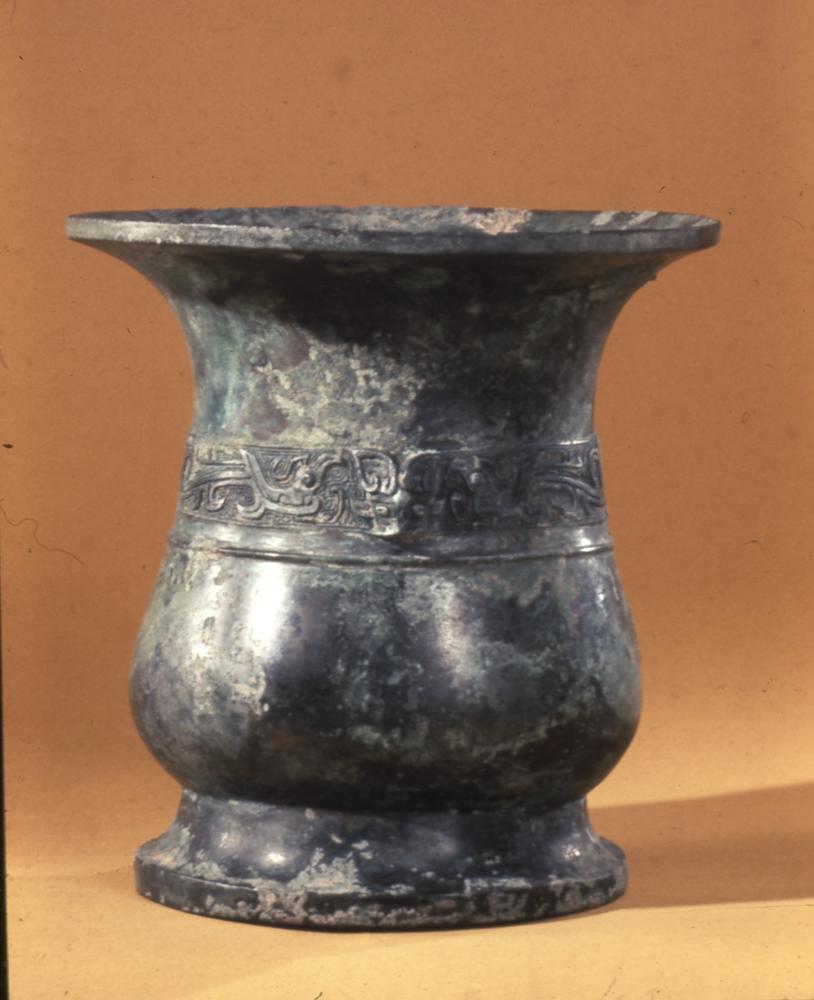[Song Tuo Chunhua Pavilion Posts]
In the third year of Song Chunhua (992), Emperor Taizong Zhao Jiong ordered to go out of the imperial palace to collect the ink of the past dynasties, and ordered the imperial scribe king of the Imperial Academy to write a copy of it and put it on the stone, which is called Chunhua Pavilion Posts. This post is also called “Chunhua Secret Pavilion Dharma Script”, or “Pavilion Script” for short. It is a collection of ten volumes. The first volume is the book of emperors, the second, third and fourth volumes are the book of famous officials, the fifth volume is the ancient calligraphy of various families, the sixth, seventh and eighth volumes are the book of Wang Xi, and the ninth and tenth volumes are the book of Wang Xian. Zhao Mengfu of the Yuan Dynasty said in his “Songxue Zhai Collection of Essays and Postscript to the Pavilion”: “In Chunhua, the Emperor Taizong of the Song Dynasty, the imperial scribe of the Imperial Academy, wrote the book he bought from three generations to the Tang Dynasty, and copied the secret pavilion in ten volumes. He gave a copy of the book to the royal family and the minister, and gave it to the minister when he entered the second mansion. Later, he stopped giving it, so it was especially valuable in the world.” The Song Dynasty recorded that the book was carved on wood. At the beginning, he used “Chengxin Tang Paper” and “Li Ting Xuan Ink”, but no such rubbings were found to be circulated
The rubbings of the Song Dynasty in the Palace Museum are sealed with the “Treasure of the Emperor Qianlong” and the “Identification Seal of the Maoqin Hall”. The white paper is carved, inlaid, cut, square and framed, and the hemp paper is expanded in black ink. The size of each page is 25.1 cm vertically and 13.1 cm horizontally. At the end of each volume, there are “three years old in Chunhua and six years old on November 6 to copy the upper stone” seal script engraving, which is complete and rare
Chunhua Pavilion Posts is the earliest one in China. Because of the poor recognition of Wang’s works, the authenticity of the legacies is mixed and disordered. However, “engravings are particularly beautiful and rich”, and the imitations are lifelike, which is the basis for the spread of ancient calligraphy. This post has the reputation of “the ancestor of the dharma post” and has a far-reaching impact on future generations
Because of the early loss of the inscription, it is very difficult to copy and reproduce it. Gu Congyi, Pan Yunliang and Su Fu are famous
Song Chensi’s “Collection of Treasure Carving”, Wang Shu of the Qing Dynasty’s “Examination of the Sutras in the Secret Pavilion of Chunhua”, Rong Geng’s “Collection of Sutras” and other books.
![图片[1]-Song Tuo Chunhua Pavilion Post-China Archive](https://chinaarchive.net/Northern Song dynasty/Inscription/861.jpg)
![淳化阁帖-帖文之一 图片[2]-Song Tuo Chunhua Pavilion Post-China Archive](https://chinaarchive.net/Northern Song dynasty/Inscription/862[1024].jpg) 淳化阁帖-帖文之一
淳化阁帖-帖文之一![淳化阁帖-帖文之二 图片[3]-Song Tuo Chunhua Pavilion Post-China Archive](https://chinaarchive.net/Northern Song dynasty/Inscription/863.jpg) 淳化阁帖-帖文之二
淳化阁帖-帖文之二![淳化阁帖-帖文之三 图片[4]-Song Tuo Chunhua Pavilion Post-China Archive](https://chinaarchive.net/Northern Song dynasty/Inscription/890.jpg) 淳化阁帖-帖文之三
淳化阁帖-帖文之三![淳化阁帖-帖文之四 图片[5]-Song Tuo Chunhua Pavilion Post-China Archive](https://chinaarchive.net/Northern Song dynasty/Inscription/892.jpg) 淳化阁帖-帖文之四
淳化阁帖-帖文之四![淳化阁帖-帖文之五 图片[6]-Song Tuo Chunhua Pavilion Post-China Archive](https://chinaarchive.net/Northern Song dynasty/Inscription/894.jpg) 淳化阁帖-帖文之五
淳化阁帖-帖文之五![淳化阁帖-帖文之六 图片[7]-Song Tuo Chunhua Pavilion Post-China Archive](https://chinaarchive.net/Northern Song dynasty/Inscription/898.jpg) 淳化阁帖-帖文之六
淳化阁帖-帖文之六![淳化阁帖-帖文之七 图片[8]-Song Tuo Chunhua Pavilion Post-China Archive](https://chinaarchive.net/Northern Song dynasty/Inscription/899.jpg) 淳化阁帖-帖文之七
淳化阁帖-帖文之七![淳化阁帖-帖文之八 图片[9]-Song Tuo Chunhua Pavilion Post-China Archive](https://chinaarchive.net/Northern Song dynasty/Inscription/901.jpg) 淳化阁帖-帖文之八
淳化阁帖-帖文之八![淳化阁帖-帖文之九 图片[10]-Song Tuo Chunhua Pavilion Post-China Archive](https://chinaarchive.net/Northern Song dynasty/Inscription/902.jpg) 淳化阁帖-帖文之九
淳化阁帖-帖文之九![淳化阁帖-帖文之十 图片[11]-Song Tuo Chunhua Pavilion Post-China Archive](https://chinaarchive.net/Northern Song dynasty/Inscription/905.jpg) 淳化阁帖-帖文之十
淳化阁帖-帖文之十![淳化阁帖-帖文之十一 图片[12]-Song Tuo Chunhua Pavilion Post-China Archive](https://chinaarchive.net/Northern Song dynasty/Inscription/906.jpg) 淳化阁帖-帖文之十一
淳化阁帖-帖文之十一![淳化阁帖-帖文之十二 图片[13]-Song Tuo Chunhua Pavilion Post-China Archive](https://chinaarchive.net/Northern Song dynasty/Inscription/909.jpg) 淳化阁帖-帖文之十二
淳化阁帖-帖文之十二![淳化阁帖-帖文之十三 图片[14]-Song Tuo Chunhua Pavilion Post-China Archive](https://chinaarchive.net/Northern Song dynasty/Inscription/910.jpg) 淳化阁帖-帖文之十三
淳化阁帖-帖文之十三![淳化阁帖-帖文之十四 图片[15]-Song Tuo Chunhua Pavilion Post-China Archive](https://chinaarchive.net/Northern Song dynasty/Inscription/912.jpg) 淳化阁帖-帖文之十四
淳化阁帖-帖文之十四![淳化阁帖-帖文之十五 图片[16]-Song Tuo Chunhua Pavilion Post-China Archive](https://chinaarchive.net/Northern Song dynasty/Inscription/915.jpg) 淳化阁帖-帖文之十五
淳化阁帖-帖文之十五![淳化阁帖-帖文之十六 图片[17]-Song Tuo Chunhua Pavilion Post-China Archive](https://chinaarchive.net/Northern Song dynasty/Inscription/916.jpg) 淳化阁帖-帖文之十六
淳化阁帖-帖文之十六![淳化阁帖-帖文之十七 图片[18]-Song Tuo Chunhua Pavilion Post-China Archive](https://chinaarchive.net/Northern Song dynasty/Inscription/919.jpg) 淳化阁帖-帖文之十七
淳化阁帖-帖文之十七![淳化阁帖-帖文之十八 图片[19]-Song Tuo Chunhua Pavilion Post-China Archive](https://chinaarchive.net/Northern Song dynasty/Inscription/920.jpg) 淳化阁帖-帖文之十八
淳化阁帖-帖文之十八![淳化阁帖-帖文之十九 图片[20]-Song Tuo Chunhua Pavilion Post-China Archive](https://chinaarchive.net/Northern Song dynasty/Inscription/922.jpg) 淳化阁帖-帖文之十九
淳化阁帖-帖文之十九![淳化阁帖-帖文之二十 图片[21]-Song Tuo Chunhua Pavilion Post-China Archive](https://chinaarchive.net/Northern Song dynasty/Inscription/924.jpg) 淳化阁帖-帖文之二十
淳化阁帖-帖文之二十![淳化阁帖-帖文之二十一 图片[22]-Song Tuo Chunhua Pavilion Post-China Archive](https://chinaarchive.net/Northern Song dynasty/Inscription/925.jpg) 淳化阁帖-帖文之二十一
淳化阁帖-帖文之二十一![淳化阁帖-帖文之二十二 图片[23]-Song Tuo Chunhua Pavilion Post-China Archive](https://chinaarchive.net/Northern Song dynasty/Inscription/926.jpg) 淳化阁帖-帖文之二十二
淳化阁帖-帖文之二十二![淳化阁帖-帖文之二十三 图片[24]-Song Tuo Chunhua Pavilion Post-China Archive](https://chinaarchive.net/Northern Song dynasty/Inscription/927.jpg) 淳化阁帖-帖文之二十三
淳化阁帖-帖文之二十三![淳化阁帖-帖文之二十四 图片[25]-Song Tuo Chunhua Pavilion Post-China Archive](https://chinaarchive.net/Northern Song dynasty/Inscription/929.jpg) 淳化阁帖-帖文之二十四
淳化阁帖-帖文之二十四
